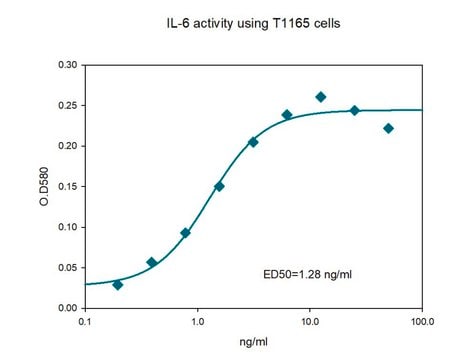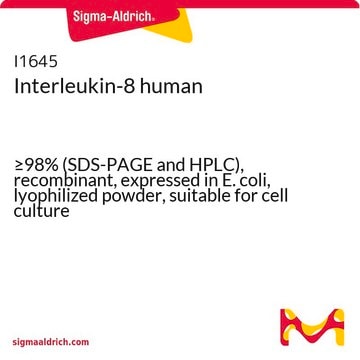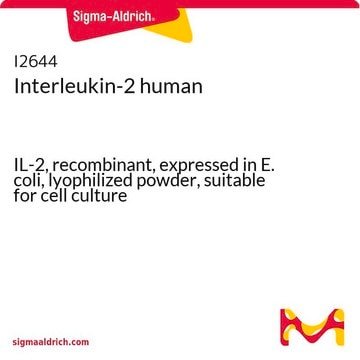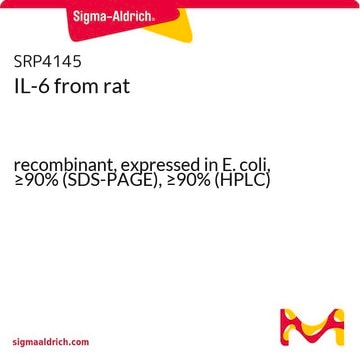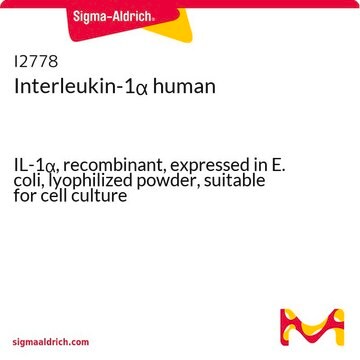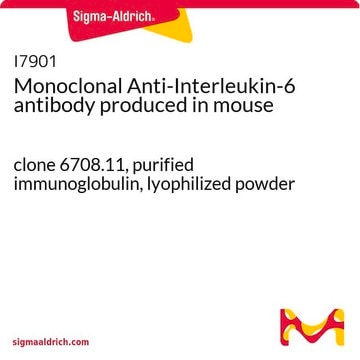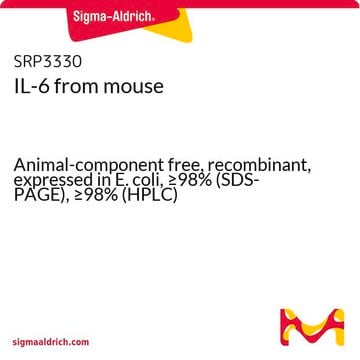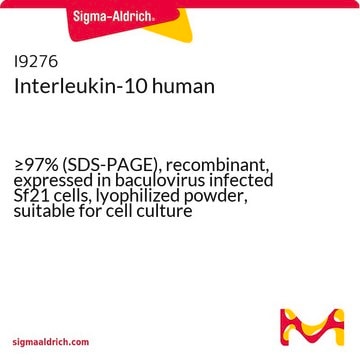I1395
IL-6 human
≥97% (SDS-PAGE), recombinant, expressed in E. coli, lyophilized powder, suitable for cell culture
Synonym(s):
hIL-6, IL-6
About This Item
Recommended Products
product name
Interleukin-6 human, IL-6, recombinant, expressed in E. coli, lyophilized powder, suitable for cell culture
biological source
human
Quality Level
recombinant
expressed in E. coli
Assay
≥97% (SDS-PAGE)
form
lyophilized powder
potency
0.2-2.0 ng/mL ED50/EC50
quality
endotoxin tested
mol wt
26 kDa
packaging
pkg of 10 and 50 μg
storage condition
avoid repeated freeze/thaw cycles
technique(s)
cell culture | mammalian: suitable
impurities
≤1.000 EU/μg
color
white
UniProt accession no.
storage temp.
−20°C
Gene Information
human ... IL6(3569)
Looking for similar products? Visit Product Comparison Guide
Biochem/physiol Actions
Physical form
Signal Word
Warning
Hazard Statements
Precautionary Statements
Hazard Classifications
Eye Irrit. 2 - Skin Irrit. 2 - STOT SE 3
Target Organs
Respiratory system
Storage Class Code
11 - Combustible Solids
WGK
WGK 3
Flash Point(F)
Not applicable
Flash Point(C)
Not applicable
Personal Protective Equipment
Certificates of Analysis (COA)
Search for Certificates of Analysis (COA) by entering the products Lot/Batch Number. Lot and Batch Numbers can be found on a product’s label following the words ‘Lot’ or ‘Batch’.
Already Own This Product?
Find documentation for the products that you have recently purchased in the Document Library.
Customers Also Viewed
Our team of scientists has experience in all areas of research including Life Science, Material Science, Chemical Synthesis, Chromatography, Analytical and many others.
Contact Technical Service
